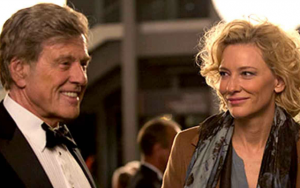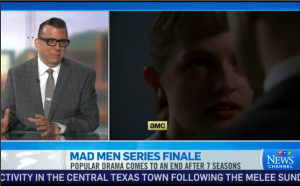Metro Canada: Robert Redford as Dan Rather brings home Truth
 By Richard Crouse – Metro Canada
By Richard Crouse – Metro Canada
Who do you get to play an icon? If you are James Vanderbilt, director of Truth, you hire another icon.
The story of 60 Minutes producer Mary Mapes and legendary news anchor Dan Rather’s journalistic examination into President George W. Bush’s military service features Robert Redford as one of the most famous reporters of the twentieth century.
“The movie’s big buy is, ‘Are you going to see Redford all the way through or are you going to see Rather?’” says Vanderbilt. “Redford is a phenomenal actor but what he brings into a scene by just being present (is a) gravitational pull. The room turns toward him. Getting to know Dan, that’s what Dan Rather is like. When Dan Rather walks into a room, the same thing happens.
“Everybody turns into, in a good way, a teenager, because those are both voices who have been in your living room for 30 to 40 years. It’s a voice of God thing they both have and that’s why I really wanted Bob to do it.”
Vanderbilt says the legendary actor is “very easy going, the nicest guy you’ll ever meet,” but nonetheless made people on the set nervous.
“We had heads of departments who had been working in film for 30 years who couldn’t call him Bob. He would say, ‘Call me Bob,’ and they would say, ‘I’m sorry, I can’t do that Mr. Redford. I’m very sorry that is not going to happen.’”
Vanderbilt is best known as a screenwriter, penning the scripts for The Amazing Spider-Man, Zodiac, White House Down and the upcoming Independence Day 2. His screenplay for Truth is based on Mapes’ memoir Truth and Duty and reveals a time before journalism was driven by ad sales and click-throughs.
“It was pre iPhone,” he says. “It was a year before the iPhone came out and that is such a big thing in terms of how we connect to one another now. How we relate to each other. Journalists and everybody. It felt like a fulcrum point, kind of where we had been, journalistically, and where we are now.”
His research into the story gave the director a new respect for journalists.
“I think it is a very noble profession but maybe I’m a very pie in the sky guy,” he says. “I think the more young people who grow up and go, ‘This is what I want to be. I want to ask questions of power,’ the better. I think we, as a society, are better that way.”

